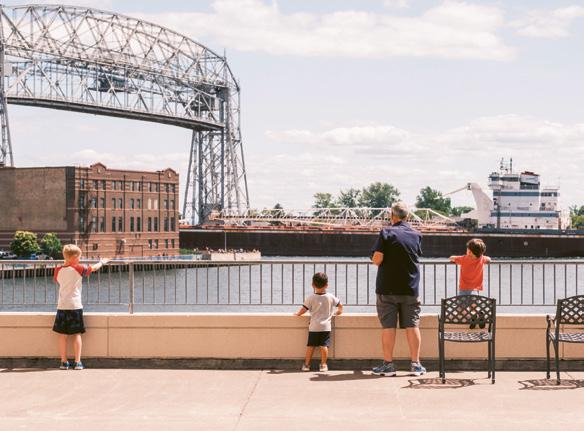FULBRIGHT FINLAND

Making the Case for Research
Communication
Building
Transatlantic Bridges in 6G and AI-RAN Research
Finnish-American Society in Science, Innovation, and Arts
2025–26 Awards
Announced


Making the Case for Research
Communication
Building
Transatlantic Bridges in 6G and AI-RAN Research
Finnish-American Society in Science, Innovation, and Arts
2025–26 Awards
Announced
Leadership is at the heart of all Fulbright Finland Foundation programs. It is also the focus of our annual March training workshop, which brings together current and former grantees to explore leadership and the roles and responsibilities each of us has in driving meaningful change. This year’s groups developed impressive action plans and roadmaps for concrete initiatives. Participants concluded that collaboration holds tremendous power, and that the critical mass for change begins to form when each individual acts within their own sphere of influence (p. 8).
Participants in our recent Fulbright School Leaders cohort agreed that “the biggest risk we face is the belief that we are powerless to change our circumstances” (pp. 14-15). To help counter this assumption, Fulbright Finland Foundation programs are intentionally designed to empower action. Our grantees are leaders and citizen diplomats, driving positive change in complex and evolving contexts—whether advancing research communication (pp. 10–12), contributing to science diplomacy networks (pp. 4-5), building transatlan-
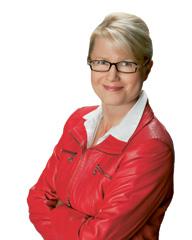
tic bridges in 6G and AI-RAN research (p. 7), or promoting developmentally appropriate sustainability education (p. 16).
Amid governments’ budget challenges and reductions in public funding for education and international exchange, alumni are also stepping up to ensure the sustainability of our programs. In this issue’s Donor Spotlight, Professor Emeritus E. Michael Loovis shares his personal motivation for supporting the Foundation (pp. 18–19).
The beneficiaries of grant investments are not only the individual recipients but our societies at large. Finland’s Minister of Education, Anders Adlercreutz, highlights the broader societal impact of international exchange and the importance of expanding participation (p. 3). As Fulbright Specialist Amber Simpson aptly put it, when we invest in these programs, “we invest in a future of shared learning, innovation, and global understanding” (p. 17).
Terhi Mölsä Chief Executive Officer Fulbright Finland
Foundation
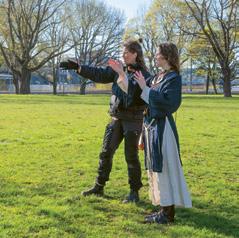
The work of the Fulbright Finland Foundation is one of many success stories we can point to in our society.
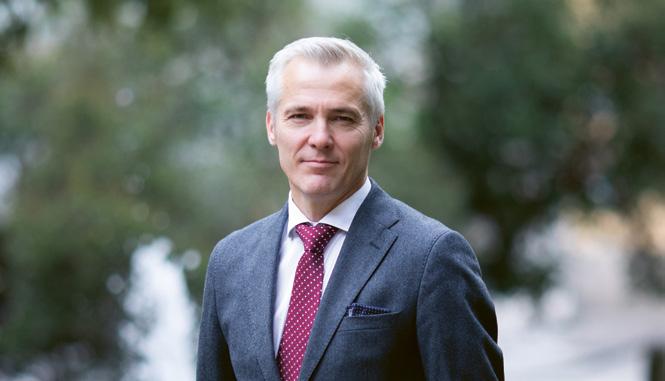
It is only in retrospect that you can fully take in what you are experiencing in the moment. The feeling of being overwhelmed when you are in the middle of something great is not that uncommon. Judging what we go through can in other words differ as we look back at what happened. In today’s world it is easy to see challenges all over, and that is certainly an understandable reaction to events near and far. It is important that we don’t let events we can’t control distract us, but stay focused on the important things in all circumstances.
THE WORK OF THE FULBRIGHT FINLAND FOUNDATION is one of many success stories we can point to in our society. For over 75 years, Fulbright has offered us the opportunity to experience another culture, both through academic institutions, but also on a full societal level. And this can be life-changing. Putting yourself in new situations, in a new environment – and doing so with open eyes and an open mind, is one of the keys to growth.
I experienced my life-changing exchange as a 17-year-old on an island in the Atlantic when I spent a year as an exchange student on Terceira, an island in the Azores. The inspiration to explore and challenge myself did come from my parents, who both studied in the U.S. in the 60s, my father as a Fulbright scholar.
The path of personal growth is one that looks different for all of us. For me, one invaluable part would be spending time in new surroundings. The Fulbright program offers opportunities to do so whilst still relating to the field of study that you are familiar with. In that sense it provides a best-
of-both-worlds approach. Being in an environment that inspires drives new thinking almost by itself, and in today’s world we need to find ways to think new thoughts.
Some universities require a semester abroad as a prerequisite for graduation. I quite like this approach, even though I realize that what works for some may be more challenging for others.
WHAT OUR SOCIETY NEEDS TODAY is for us all to be more understanding, more appreciative of our differences, and more aware of the fact that we have to constantly move forward. There is no such thing as a status quo in our societies. Either we move forward or we fall back. And Finland needs to realize that moving forward requires us all to be able to see beyond our borders. And that happens far more easily if we actually know what is out there.
In many respects the importance of caring for the transatlantic bond is bigger now than perhaps ever. We, who can see and experience the awesome results of shared values, prosperity, and growth, must also know that we should not take things for granted. In order for us to secure this for the next generation as well we need to make a solid effort. And no one does that better than the Fulbright Finland Foundation. So it is with strong conviction that I endorse this work and hope even more people will get the opportunity to experience the growth and fulfillment that time abroad can lead to.
Anders
Adlercreutz Minister of Education
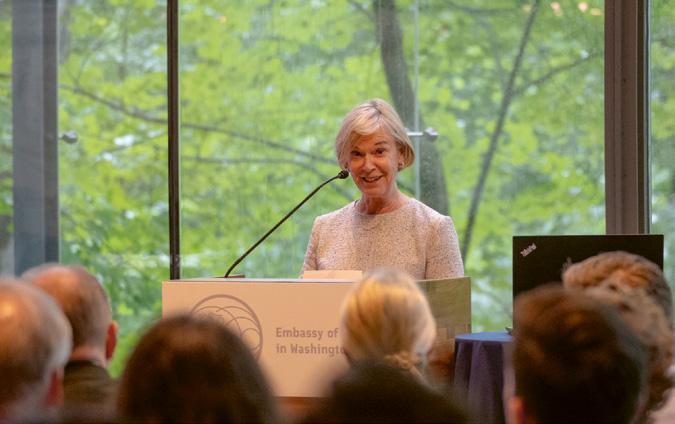
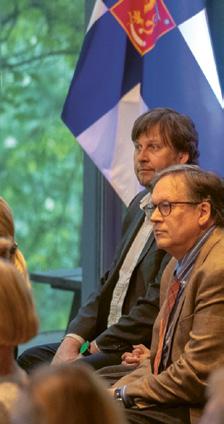
The Finnish-American Society in Science, Innovation, and Arts has officially launched! Initiated by the Embassy of Finland in Washington, DC, this new platform fosters transatlantic collaboration by bringing together individuals across disciplines and borders.
Finland already enjoys robust networks of scientists, researchers, Finnish-American cultural organizations, friends of Finland, university alumni, and international science diplomacy groups in the United States. This initiative seeks to unite these communities under one umbrella.
This broader network is vital for many reasons— not least because of its potential to contribute to solving global challenges.
“In today’s rapidly changing world, no country can innovate in isolation. Global challenges demand global solutions. That is why science diplomacy— building bridges through research and innovation— is more important than ever,” says Ambassador of Finland Leena-Kaisa Mikkola
It was a full house at the launch event at the Embassy of Finland in Washington, DC, in late May. A third of the participants were grantees and alumni of the Fulbright Finland Foundation.
Since the inception of its programs in 1949, the Fulbright Finland Foundation has supported more than 6 300 Finnish and American grantees. Over 2 200 of them are U.S. alumni living in the United States,
with the Foundation maintaining regular contact with more than 1 000 of them. The vast majority continue to maintain ties—or active collaborations—with their Finnish counterparts, building on relationships formed during their time in Finland.
“This is a living, active, evolving, and impactful network of experts and specialists,” says CEO Terhi Mölsä. “And I am thrilled that through the new Finnish-American Society in Science, Innovation, and Arts, we now have the opportunity to connect our Fulbright Finland network with the many other U.S.-based communities and networks linked to Finland. There is immense value in connecting people across these communities.”
In the photos, Ambassador of Finland to the United States Leena-Kaisa Mikkola (left), CEO Terhi Mölsä (right), and Fulbright Finland alumni Kelly Day, Bill Eaton, and Edward and Barbara Sivak (below).
For more photos from the launch event see: www.flickr.com/photos/ finnembassydc

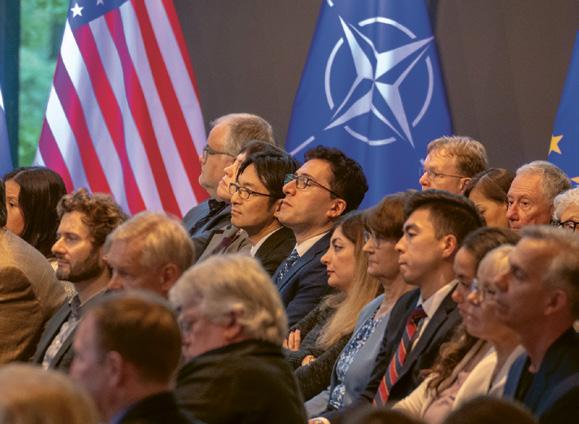
After the remarks by Ambassador Leena-Kaisa Mikkola, and Fulbright Finland Foundation CEO Terhi Mölsä, the program included a keynote by Antti Pulkkinen, Director of the Heliophysics Science Division at NASA Goddard Space Flight Center. Finland’s Honorary Consul in Boston Henrik Tötterman led a lively panel with leading experts from the Washington science diplomacy community discussing different models for diaspora networks and highlighting international examples and best practices.
The Embassy of Finland organized the launch event in collaboration with the Fulbright Finland Foundation, the Finnish-American Research and Innovation Accelerator (FARIA), and the National Council of University Research Administrators (NCURA). The initiative was spearheaded by Petri
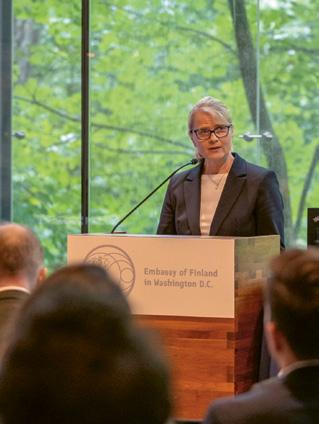
In today’s rapidly changing world, no country can innovate in isolation. Global challenges demand global solutions. That is why science diplomacy—building bridges through research and innovation—is more important than ever.
Koikkalainen and Hannakaisa Andersson from the Embassy. As the network grows, more events and opportunities for collaboration are on the horizon, so stay tuned!
For more information about the Finnish-American Society please contact Petri Koikkalainen at the Embassy of Finland at petri.koikkalainen@gov.fi
The Fulbright Finland Foundation has established a new award: the Fulbright Finland–E. Michael Loovis Travel Grants to Cleveland State University. This short-term travel grant is made possible by a long-term alumni donation agreement with Fulbright Finland alumnus Dr. E. Michael Loovis
The new grant supports researchers (including doctoral students), faculty, and administrators from Finland to initiate or advance research collaboration and/or institutional partnerships between their Finnish home institution and Cleveland State University. Eligible visits may range from one week
to three months in duration. The first application round for visits during the 2026–27 academic year will open in November 2025.
Established already earlier, the Fulbright Finland-E. Michael Loovis Scholastic Award supports undergraduate, graduate students, and researchers from Finland to Cleveland State University. The new travel grant broadens these opportunities even further.
“We are deeply grateful to Dr. Loovis for his long-standing support,” says Terhi Mölsä, CEO of the Fulbright Finland Foundation.
Fulbright Finland–E. Michael Loovis Travel Grants to Cleveland State University www.fulbright.fi/ travel-grants/michaelloovis-travel-grants
Read an interview with Mike Loovis on page 18.
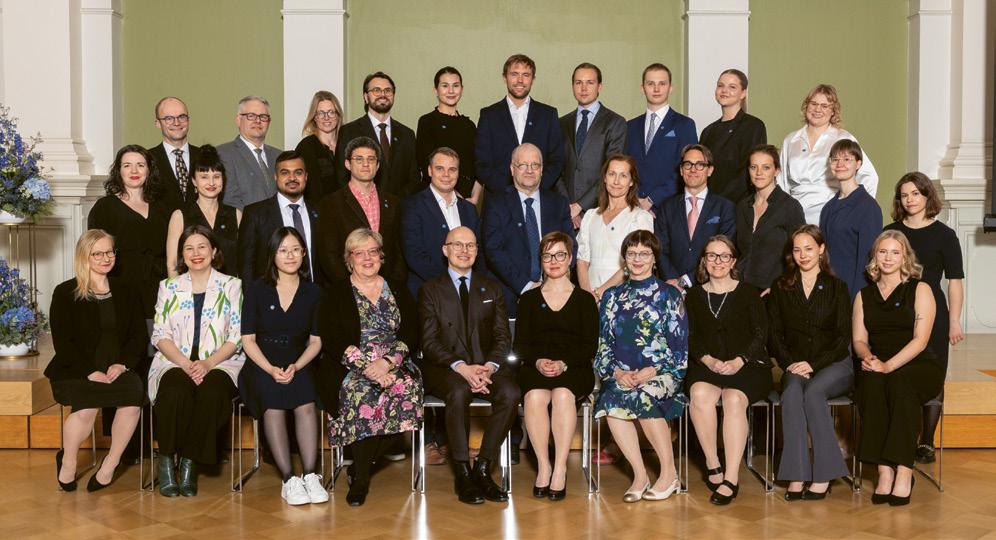
The Fulbright Finland Foundation recognized the newest cohort of Finnish students, scholars, and professionals selected for grants to the United States for the 2025–26 academic year at the annual Awards Ceremony at the Helsinki City Hall in May.
With their selection, the grantees joined a community of over 6 300 Fulbright Finland Foundation alumni, who represent all fields in the arts, sciences, and society at large. The event also honored the current U.S. grantees in Finland who are concluding their Fulbright terms in early summer.
The Awards Ceremony was hosted jointly by the Ministry for Foreign Affairs of Finland and the City of Helsinki. Director of Economic Development at the City of Helsinki Marja-Leena Rinkineva welcomed the guests to the Helsinki City Hall. She highlighted the positive impact that exchanges have on education and research, and on communities, cities, and societies at large, bringing diverse perspectives, enriching communities, and fostering creativity.
“Today this is more important than ever,” she emphasized. “We must maintain a strong faith in education and cross-border cooperation – like that found in the Fulbright Finland Foundation.”
Remarks on behalf of the two governments were delivered by Political Secretary Pasi Rajala from the Ministry for Foreign Affairs of Finland, and Chargé d’Affaires Christopher Krafft from the U.S. Embassy. 2024-25 Fulbright-Tampere University Scholar Julianne Newmark Engberg delivered words of thanks on behalf of the 2024-25 U.S. grantees in Finland.
The Foundation announced 32 new grant recipients representing a wide range of disciplines and research topics from AI-enabled 6G research to Arctic security, fine arts, and energy and environmental law.
This year’s awards have been made possible by the Foundation’s partners – the Finnish higher education and research institutions and private Finnish foundations – the Foundation’s alumni, individual and corporate donors, and by support from the Finland-America Educational Trust Fund, and the Finnish and U.S. governments.
At the event, the Foundation was pleased to announce the first grants supported by the Ambassadors’ Circle Scholarship Fund, established in 2024
in honor of the Foundation’s 75th anniversary. The fund was founded by donations from Finnish and U.S. companies and private philanthropists to support research and study in the United States for Finnish scholars, students, and experts in fields critical for the development of science, economy, and innovation in Finland.
Another first this year was the new award in information and telecommunications technology for Finnish post-doctoral researchers sponsored by Nokia Foundation. The first grant recipient funded by this partnership was announced at the ceremony.
All Fulbright Finland Foundation awards include a comprehensive orientation training, which for some grantees started already last year. An important part of the training program is the oneday Pre-Departure Orientation seminar in Helsinki that plugs the grantees into important networks and gives them an opportunity to meet face-toface with each other, and with the Foundation’s alumni and key partners.
Over 20 alumni contributed their time and expertise to this year’s orientation seminar, helping prepare the next cohort of citizen diplomats.
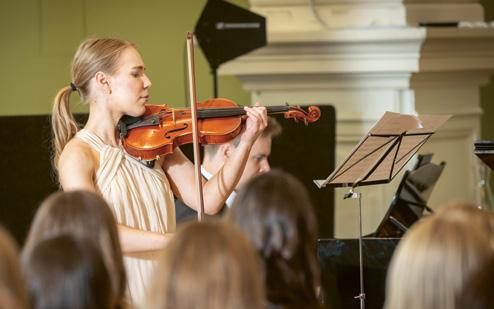
2022-23 ASLA-Fulbright Graduate Grantee Vivian Stolt and pianist Ossi Tanner performed two songs at the ceremony. Earlier this year, Vivian was appointed as the General Manager of the UK-based Waterperry Opera Festival.
To date, over 60 Finnish and U.S. grantees have been selected to participate in the Foundation’s programs for the academic year 2025-26. Additional selections will be made later in the year, bringing the total number of next year’s grantees close to 100.
Artificial Intelligence (AI) has rapidly transformed the world in just a few short years, while mobile networks have become the backbone of modern society over the past two decades, evolving from simple voice calls to instantly streaming high-definition videos. AI-RAN (Artificial Intelligence for Radio Access Networks) sits at the intersection of these two revolutions, aiming to make tomorrow’s mobile networks more intelligent, adaptive, and efficient. Simply put, it’s about building the social infrastructure for the upcoming AI era.
Northeastern University’s (NU) Institute for the Wireless Internet of Things (WIoT) in Boston is a global leader in AI-RAN research and a founding member of the AI-RAN Alliance, a consortium of top technology companies and academic institutions dedicated to advancing mobile network performance through AI.
Launched in 2018 at the University of Oulu, the 6G Flagship program envisioned AI as a core component of next-generation mobile networks. As the research manager for AI-RAN at 6G Flagship, I was fortunate to receive a Fulbright Finland Travel Grant for Research Collaboration, which enabled me to spend two weeks at WIoT which was an incredible experience that deepened my understanding and broadened opportunities for future collaboration.
This visit provided an invaluable opportunity to connect face-to-face with leading researchers developing cutting-edge wireless technologies. After seven years of foundational 6G research at 6G Flagship, we are now focused on translating that knowledge into practical technologies, and international partnerships like this are crucial to that progress.
Beyond the technical aspects, this trip reinforced the value of face-to-face interactions. Quick hallway conversations, spontaneous lab visits, and informal coffee talks foster trust and momentum that virtual meetings rarely capture. I have already invited my Boston colleagues to visit Oulu, and our teams will soon meet at an upcoming in-person AI-RAN Alliance meeting in Helsinki.
On a personal note, representing Finland abroad, while offering a unique perspective through Sri Lankan eyes was a true privilege. It was an opportunity to share not only Finland’s values and its research and innovation culture, but also to reflect the richness that diversity brings to international collaboration. I had many memorable conversations where curiosity, respect, and mutual inspiration transcended borders.
I return home with not only fresh scientific insights but also a renewed belief in the power of shared understanding, cultural exchange, and global collaboration.
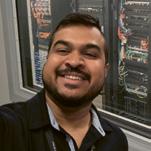
Northeastern University
Read the whole article www.fulbright.fi/newsmagazine/buildingtransatlantic-bridges-6gand-ai-ran-research www.fulbright.fi/ travel-grant-research
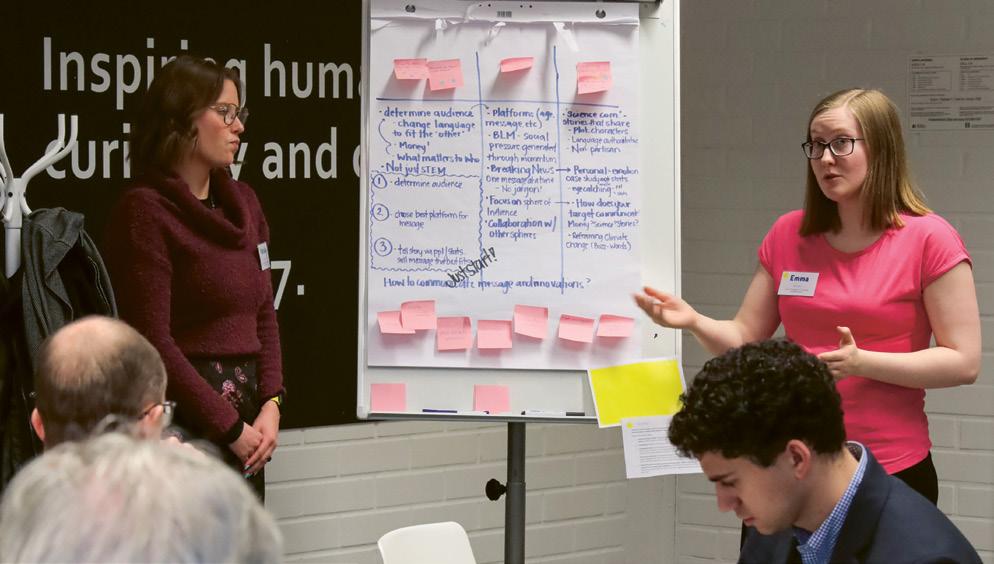
Leadership is at the core of all Fulbright Finland Foundation programs. Leadership is about the conscious choice and responsibility anyone can take to make a real difference, regardless of age, background, field, or specific grant program.
This spring, leadership was also the theme of a workshop titled “Leadership for Meaningful Change - Concrete Ways to Engage Audiences,” organized by the Foundation at Aalto University as part of the Mid-term meeting for the 2024-25 U.S. Fulbright grantees. Each spring, the Foundation brings all U.S. grantees to Helsinki and hosts a workshop or seminar focused on a strategically important theme.
The event brought together U.S. Fulbright grantees and Fulbright Finland alumni to discuss leadership and the roles and responsibilities we all have in driving meaningful change.
The workshop opened with a fireside chat with Jenni Halonen, Fulbright Finland alumna and member of Finland’s Agenda2030 Youth Group, and Jamie Hyneman, CEO of M5 Industries, co-host of the television series MythBusters, and Senior Advisor for the Foundation.They discussed their own journeys in leadership, the most effective strategies in mobilizing young people, and how to get different actors to operate and communicate across silos. As the goal of the workshop was that all participants leave with concrete, actionable ideas, Jenni and Jamie also shared their thoughts on how to get
audiences from simply understanding an issue to actively engaging and contributing to change.
In small groups, the participants co-created actionable strategies and practices to engage audiences and drive change in challenging environments. Guiding questions included: “How can educators empower students of different age groups to advocate and act for positive change?” and “How can researchers communicate their innovations to decision makers, media, and the general public?” These discussions led to the development of action plans and roadmaps for real-world impact.
The most important takeaway from the workshop? “Just get started.” Participants agreed that the critical mass for change begins to form when individuals recognize their own spheres of influence and use their unique strengths for good.
Text and photos: Maija Kettunen
Mulhern shares her group’s concrete action plan for how researchers can better communicate their work.
Hyneman (left) and Jenni Halonen discussing their own journeys in leadership during a fireside chat.
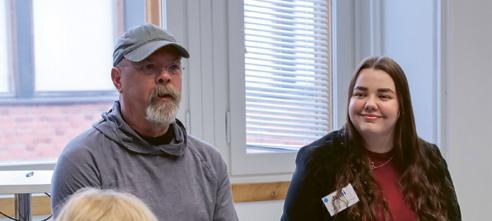
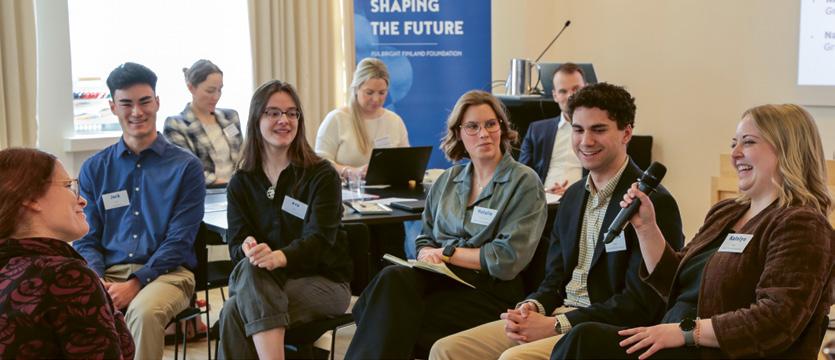
Short-term summer programs, proactive partnership building, and enhanced international student support were some of the diverse topics explored by Finnish Higher Education Institution (HEI) representatives at a recent capacity building workshop organized by the Fulbright Finland Foundation.
Insights and Inspirational Practices
The workshop featured a variety of perspectives and practical examples both from the U.S. and Finland.
Leasa Weimer, Director for Global Partnerships at the University of Denver and Fulbright Finland alumna, shared current trends in U.S. higher education and student mobility. She noted that survey data shows that, for example, U.S. students prefer studying abroad during the summer, a demand Finnish HEIs could better tap into.
Current Fulbright U.S. Scholars shared insights into their U.S. home institutions’ international partnerships policies and practices. They emphasized the importance of aligning partnerships with institutional missions and maintaining regular outreach, not just signing agreements but actively promoting and sustaining them.
Finnish HEI representatives shared concrete examples of how their U.S. partnerships have been designed, developed, and sustained. Key recommendations included having a proactive approach to meeting with U.S. partners face-to-face, tailoring programs to the partner university, and being flexible.
Designed specifically for administrators and faculty, the Fulbright Finland Travel Grants for Institutional Partnership Building program has also been a useful tool when launching new partnerships.
In addition to institutional strategies, the workshop highlighted the student experience. A panel of U.S. students currently studying in Finland praised the Finnish tutor system, the approachable teaching culture, and Finland’s strong focus on sustainability.
To strengthen international student services, the panelists recommended clearer communication on healthcare and mental health services, improved guidance on housing and digital ID systems, and more social integration during orientations.
The workshop participants were keen to learn how to promote Finland as a study destination in the U.S. The students suggested leveraging word-ofmouth marketing through alumni and student testimonials to capture the attention of U.S. students. Additionally, highlighting Finland’s academic strengths, especially in fields like climate change and sustainability, peace studies, and human rights, can resonate strongly with U.S. students seeking meaningful education experiences.
Text: Karoliina Kokko, Diva Ramitha
U.S. Students (l-r) Jack Donell, Ava Asmus, Natalie Schirmacher, Andrew Greene, and Katelyn Moje offered their perspectives on the international student experience in Finland.
The training was funded in part through the Finnish Ministry of Education and Culture, and a U.S. Study Abroad Engagement Grant from the U.S. Department of State’s Bureau of Educational and Cultural Affairs.
The training was tailored based on a pre-event survey, and included an introductory Pre-Event Webinar on the U.S. Higher Education System, a full-day workshop in Helsinki, and a networking reception hosted by the Finnish Ministry of Education and Culture.
All the materials can be found on the Foundation’s website: www.fulbright.fi/capacity-building-workshop-2025-key-takeaways
Two Fulbright scholars share their beliefs about why academic researchers need to engage with the public – and what happens when they do.
Text LOUISA GAIRN
Political scientist Joshua Wilson and international relations scholar Ulla-Stina Henttonen both know what it means to step out of the archive and into the media spotlight - and indeed, increasingly see this as a crucial part of their role as academic researchers.
“We’re trained to speak to narrow audiences, to other experts, but I believe we should be continually engaging with the public, to give them the larger context to think more constructively about events,” says Josh, who is currently 2024-25 Fulbright Bicentennial Chair in American Studies at the University of Helsinki. “In politics, there’s a constant stream of headlines. That’s very disorienting. And I feel like a really valuable thing that academics – political scientists, historians, sociologists – can provide is to pause and show how the everyday headline relates to bigger themes.”
Ulla, a PhD researcher at Tampere University and a recent ASLA-Fulbright Pre-Doctoral Research Fellow at George Washington University, agrees. “I think often the true value of our research work is measured in its impact, and that’s rarely just by communicating within that research bubble,” she explains. “The ability and the willingness to reach out, and make our expertise accessible, understandable and relevant to the wider society is really key.”
But what led each of them to begin communicating their research to wider audiences, and what have they learned along the way?
Josh explains that his research focuses on modern American conservatism, particularly the Christian Right. In addition to his academic work, he has written extensively for outlets like The Washington Post and Newsweek, as well being regularly cited in the media and appearing on podcasts and television
interviews. His original Fulbright project aimed to explore how the Republican Party historically realigned its voter base, using archival research from the Reagan and Nixon eras. However, once in Finland, he explains, he realised he had an opportunity to do more.
The ability and the willingness to reach out and make our expertise accessible and understandable and relevant to the wider society is really key.
“Being in Finland, I wanted my work to be much more connected to the place,” he explains. “In the U.S., I do a lot of public outreach. I’ve written a lot of op-eds, I do a fair number of media interviews, and I do public talks whenever I can. I really wanted to continue that here in Finland.”
Over the past year, Josh has made public engagement a central part of his Fulbright activities, giving a series of talks in ten Finnish high schools, in addition to public lectures at university and other venues, as well as participating in media discussions. “When I arrived in Finland, it was good timing in the sense that there was a big U.S. presidential election coming up. People were paying a lot of attention to it, and I could speak to that, so that really ended up being the focus of a lot of my time here.”
Ulla has also recently been called upon by the Finnish media to share her expertise on the U.S.,
including appearing on Yle’s Suomi on amerikkalainen (Finland is American) documentary series. After completing her master’s at Johns Hopkins University, SAIS, and later working in science communication and public affairs in Finland, she returned to academia to pursue a part-time PhD at Tampere University, focusing on international relations and national security, specifically U.S.-North Korea relations. As a Fulbright pre-doctoral scholar, she spent six months at George Washington University in Washington, DC in 2024, accompanied by her husband and infant daughter.
“I’ve always worked a lot in science communication. Fulbright gave me the opportunity to experience that from the U.S. side, too. I think in the U.S. there is more emphasis from academic institutions on ensuring their experts are visible, and supporting them to work with the media,” she points out, arguing that universities need to support and equip researchers to do more public outreach. “They need to encourage their experts to get their voices heard.”
While both scholars speak passionately about the importance of public communication, they admit it comes with challenges.
“We’re often hesitant to put ourselves out there, but if we don’t, someone with less understanding but more confidence will fill the void,” Ulla contends, and while researchers sometimes bemoan misinterpretation or mischaracterization of their work in the media, the experts need to speak up to ensure research is reported accurately. “I think there is a lot of responsibility that goes to us as researchers and as experts in making ourselves and our work accessible.”
But the potential impact of public engagement goes beyond the individual researcher, project, or even institution, Josh argues: “It’s also incredibly important for scholars to engage with the public because the public does not really understand what we do and why they should support it. Higher education is vulnerable to attack as a result, and we are seeing this play out quite dramatically right now.”
“Public engagement is not just about bringing useful information to the public that they otherwise might not have access to. It is also about having the public recognize higher education and research’s value, and thus why it needs to be supported and –increasingly – protected,” he adds.
How can researchers get their message across when the topic itself is often controversial?
“I tend to not come at op-eds with the argument of, ‘I want to convince you this policy is right or wrong.’ I try to show how what we’re seeing fits into a larger context,” says Josh.
“All of my academic work has been about interviewing conservatives, and there’s usually a lot of
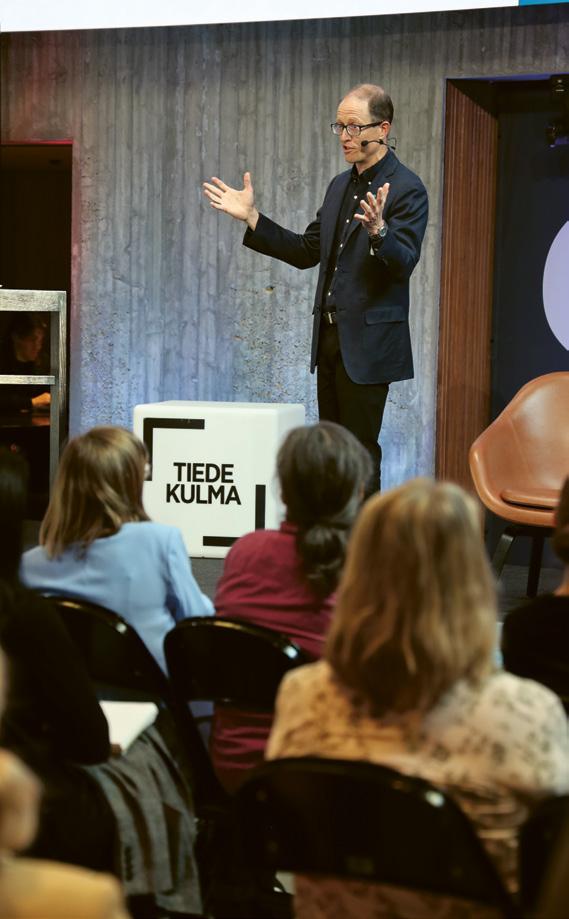
initial pushback. So one of the things I had to think about early in my career was how do you gain trust with people who are predisposed to not trust you?
It’s something that I’ve always had to work on, and it translates nicely into op-ed writing. How do you present things so that they don’t produce an initial response that shuts somebody down, that makes them not want to engage?”
Neither Josh nor Ulla claim to have all the answers, but both offer practical advice for researchers considering taking their first step into public discourse.
“You need to prepare differently depending on the platform,” Josh emphasizes. “For a TV interview, you go in thinking: here are the points I hope I can make.You need to pay attention to the way the interview is developing and don’t say yes to things or feel that you need to comment on things where you don’t have sufficient expertise.”
“For an op-ed, you’ve got 800 words, but that’s kind of a sweet spot. You can make one clear point, and you can add some nuance. I always tell my students to think about how you would explain an academic paper to a relative around a holiday dinner table – that helps you think about how to translate academic work into accessible forms,” he says.
“You need to ‘embrace the discomfort,’” Ulla adds, smiling. “I was a nervous wreck for two weeks before my first TV interview,” Ulla recalls. “But afterwards, when my husband asked how it went, I said: I did it. I did a new thing that made me uncomfortable. I did it to the best of my ability, and I’m going to revel in that.”
Ulla also believes researchers need to have a bit more confidence in their abilities and knowledge. “We tend to view our own expertise in very narrow terms. But usually the truth is that we know much more. We shouldn’t be afraid to speak to broader topics, as long as we maintain integrity.”
However, speaking publicly risks public reaction, particularly in the age of social media. “There is definitely risk involved, especially on the topics that I’ve spent most of my career on, like abortion politics – that’s just a minefield, right?” Josh reflects, noting that news outlets sometimes choose a controversial or attention-grabbing headline that can provoke extreme reactions.
“Research findings sometimes get viewed as somehow value-laden, or as personal opinions. It can be very harmful and sad if that fear of being targeted for your research makes you shy away from sharing,” says Ulla. “But I think the worst thing we can do is to go deeper and deeper into our own little bubbles where we just talk to each other. The world desperately needs fact-based information.”
But when it comes to gauging the full impact of all this, you may never know exactly who you’ve reached, and what has changed as a result.
“I’ve had some teachers here in Finland say that students came away from my talks with a new way of thinking about the U.S.,” says Josh. “But with things like op-eds, you send them into the world... and then who knows?” I’ve tried to get my pieces into mainstream magazines and newspapers, simply because there is a larger audience there. I might not be able to track what happens, but at least I know that it’s in this larger venue and so a greater number of people will read it.”
“I think the point is not necessarily to teach people to find their way to the source of the academic knowledge,” adds Ulla. “I think the biggest invisible work happens on the laptops of the journalists. I think there’s a big role for researchers and experts to support the work journalists do by being available, providing information, pointing them in the right direction, ensuring accuracy, because then that filters down into good quality information for broader audiences.”
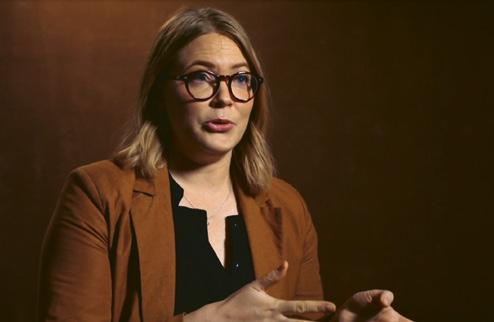
And, while the outcomes are not always quantifiable, the researchers agree the experience of communicating research, particularly in another country and culture, makes a profound impact.
“You know, it’s funny, I was always a little skeptical when people say living abroad is life-changing. But now I get it,” Josh smiles. “It’s both on a personal and professional level, there’s clearly a place for this idea that Fulbright often talks about, of the citizen diplomat. I think it definitely matters.”
Henttonen has recently been called upon by the Finnish media to share her expertise on the U.S., including appearing on Yle’s Suomi on amerikkalainen (Finland is American) documentary series. Watch the series on Yle Areena: https://areena.yle.fi/ 1-67243519
Public engagement is not just about bringing useful information to the public that they otherwise might not have access to. It is also about having the public recognize higher education and research’s value, and thus why it needs to be supported and – increasingly – protected.
“Teaching here is going to change the way I will teach back in the U.S. Finnish and European students didn’t understand why something like abortion is even a political issue, for example. That forced me to explain it better. It sharpened my own thinking,” he adds.
“Your point of view is based so much on your environment, your education, the values you grew up with,” says Ulla. “It’s very hard to get a feel of that just by observing from the outside, but by being immersed into the environment, in the media landscape, the language, you can begin to realize how differently we communicate things and how differently we hear it and interpret them as well.”
“Ever since I came back from the U.S., I find myself often kind of explaining Americans to the Finns. And whenever I’m in the States, of course it’s the other way around. And I think that’s kind of a pretty cool superpower.”
When I received the news that I was awarded the Mid-Career Professional Development grant, I was not only overjoyed but also it immediately reflected that I had found a value-aligned community in Fulbright Finland. For this rare opportunity, I had two main inquiries: to bring new awareness to the filmmaking process and to explore the topic of Finnish craft practice as a map to a sense of belonging.
For this project, my intention was to focus on the process itself versus the final product. I was interested in exploring an approach to filmmaking emphasizing a slow pace and a close collaboration with film participants built on a foundation of trust and safety. Making documentaries creates a unique opportunity for film participants to reflect on their place in the world.
As filmmakers we are given intimate access to people’s lives and it is our responsibility to hold that with the utmost sensitivity and respect. It is my belief that to capture the most authentic story one must first invest in creating a human relationship with one’s collaborators and also to release one’s expectations of what the story might be and give full attention to what is unfolding through the filmmaking experience.
Upon reflection, it is no accident that exploring this approach was so successful here in Finland where the culture is defined by values of trust, respect, and openness.
Topping the World’s Happiness Report for the 8th year in a row, it is evident that Finland and its cultural values and practices are worthy of deep exploration. The film I am making, titled Her Inherent Belonging, is a character-driven documentary exploring how Finnish craft as a practice connects the maker to a sense of belonging.
Craft offers a holistic experience often lacking in our digitally-dominated modern world. Working with one’s hands harmonizes the whole human: unifying intellect, heart, and body. Remembering our inherent wholeness reminds us of our interdependence with each other and the natural world. When we are rooted in this feeling of belonging, we are more able to contribute to creating a reality that serves the whole.

Having authentic moments with people from different cultures is critical for developing empathy. By being a visitor, we have the potential to offer both ourselves and those we meet a unique perspective. Being outside of our home culture we have the space to reflect on our own position in the world, begging potent questions like: What assumptions do I have about myself and others? What creates the myth of separation between us? What unifies us?
In reference to my experience of filmmaking in Finland, I was a guest in the lives of my collaborators. Moving from a place of humility and respect, this perspective of being an outsider can bring a specific value to a story. It offers the space sometimes not available to us when we are “in it” to identify what is unique about something in reference to dominant paradigms and then celebrate its value. The international exchange offered by Fulbright Finland’s programs offers grantees this invaluable opportunity to imbue their work with a deeper level of meaning that ultimately ripples out to contribute to a collective sense of understanding.
Fulbright Finland’s Mid-Career Professional Development grant not only made this film possible, it also celebrated it. In the current climate, applying for grants in the arts is an act of fortitude and requires a great deal of perseverance. To receive a Fulbright grant for this project is not only an honor but also gives me the courage to trust in what I uniquely have to contribute to the world.
The appreciation I have for the Fulbright Finland Foundation and the meaningful experience it facilitated is difficult to put into words. I am leaving Finland with the privilege of stewarding my collaborator’s stories and an eagerness to share this intimate window into Finnish life with wider audiences so that they may develop a new sense of understanding however big or small.
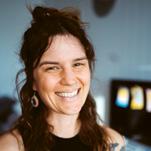
McClintock Independent Filmmaker 2024-25 Mid-Career Professional Development Grant
www.fulbright.fi/us-mcpd
Read the whole article www.fulbright.fi/newsmagazine/new-senseunderstanding
Her Inherent Belonging
To follow along and/or support the completion of the film: www.madisonmcclintock.com/herhinherentbelongingfilm
Instagram: @madisonamcclintock
Final film release late 2026.
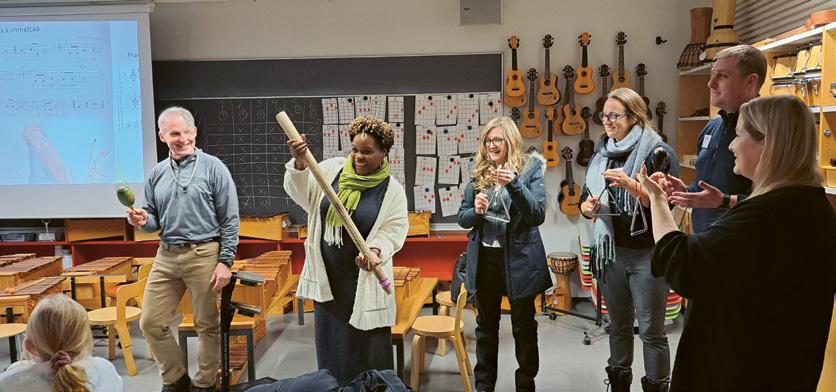
Text MIRKA MCINTIRE
What happens when eleven U.S. school leaders from ten different states engage in a dialogue with Finnish educators and together reflect upon their own education and leadership practices during an intensive study tour?
For the fourth time, the Fulbright Leaders for Global Schools (FLGS) program brought eleven K-12 administrators to Finland in January to see the Finnish education system firsthand.
Over the course of 10 intensive days, these leaders were immersed in a culture that places deep trust in educators and prioritizes student wellbeing. “The role of the teacher in Finland extends beyond instruction. Teachers serve as mentors, guides, and facilitators of the learning process. This holistic approach aligns with the Finnish belief that it is the ‘whole child’ that must be supported, not just the subject matter. This resonated with me,” says Danna LaCaze, Director of Special Education at Natchitoches Parish School Board.
Besides profound sharing of knowledge and good practices, many participants ended up forming lifelong friendships and gaining a network of professional confidants to support them in their school development initiatives and beyond.
“Learning about the differences in practices between U.S. states was almost as striking as learning about the similarities and differences between
Finland and the United States,” says Cristina Buss, Vice Principal from Visions In Education Charter School in California.
“The authenticity with which school leaders shared their successes and struggles, frustrations and triumphs, experiences and new learnings, and their sincere willingness to help one another by providing suggestions and feedback within the safe space we created left me feeling full,” praises Joyce Pulphus, Principal of Bronx Design & Construction Academy.
John Wilfred Cwikiel, Superintendent-Principal of Beaver Island Community School, has already explored opportunities to write journal articles with the educational leaders and researchers that he met in Finland: “In addition to the simple joy in connecting with people from different backgrounds and life experiences, this program created the potential for future collaborations.”
Many Finnish administrators hosting the U.S. school leaders appreciated how much they learned through the questions and insightful discussions that took place during the visit. As part of their journey, the Fellows also participated in the Educa Fair, Finland’s leading event for the education and training sector, that attracted nearly 17 000 participants.
Karen Cheser, Missy McClurg, and Joyce Pulphus shared their expertise in a panel titled “Supporting Future Workforce through Community Collaboration & Innovative School Programs.” The discussion,
Fulbright School Leaders learned about teacher training and music education at the Viikki Teacher Training School of the University of Helsinki.
www.fulbright.fi/us-flgs
The FLGS program is sponsored by the U.S. Department of State with funding from the U.S. Government. It is administered in the U.S. by IREX, and administered and co-funded in Finland by the Fulbright Finland Foundation.
facilitated by Fulbright Finland alumna and Principal of Tikkurila Upper Secondary School Marianna Sydänmaanlakka, highlighted the importance of connecting education to real-world applications and drew significant interest from the Finnish and international audience with concrete ideas and innovations.
The true power of this experience lies in what participants bring home, whether a renewed sense of purpose and motivation or actionable strategies grounded in good practices used by fellow educators. While merely six months have passed, the Fellows are already implementing learnings in their school communities and advocating for positive changes.
Many of the participants were inspired by the flexible pathways for students that they witnessed in Finland and wanted to develop stronger connections between vocational and academic tracks to ensure students always have options to continue their education. Some considered implementing regular breaks to make room for students to engage in more play and to enhance student focus and well-being.
“As a part of my district’s professional development for special education, I aim to adopt a more collaborative, teacher-led approach to planning and growth. By ensuring that teachers are involved in the decision-making process and are given the freedom to experiment with new practices, we can create a more motivated and resilient teaching workforce,” says Danna LaCaze.
Inspired by the Finnish model, Danna is also working to establish a more consultative role for special education teachers in her schools, where they collaborate with general education teachers to
provide individualized support within the general classroom with the goal to reduce the stigma often associated with special education.
The program reinforced that the biggest risk we face is the belief that we are powerless to change our circumstances. Education must evolve to support human flourishing, preparing students not just for jobs but for meaningful, interconnected lives.
Ten days goes extremely quickly, but for most participants it is just the beginning of a life-long learning journey in a transatlantic community of Fulbright educators. The ripple effects are tangible: stronger leadership, more innovative schools, and ultimately, better outcomes for students.
“I will do my best to ensure that the learning I experienced will help me be a better educational leader and that I will carry the lessons learned forward in my interactions with students, their families, faculty and staff, and other educational leaders,” says John Wilfred Cwikiel.
As Cristina Buss concludes: “I love the idea that Fulbright is a ‘life sentence’—a short-term travel experience with a long-term impact. The program reinforced that the biggest risk we face is the belief that we are powerless to change our circumstances. Education must evolve to support human flourishing, preparing students not just for jobs but for meaningful, interconnected lives.”
Megan Thiede receives the 2025 Roth-Thomson Award to support her professional development in service design for improved digital literacy.
“With support from the Roth-Thomson Award, I traveled to Estonia for the Global Service Design Day, and France to participate in challenge-based learning focused on mobility. Additionally, I attended the Urban Future Conference in Łódź, Poland, where I was exposed to urban design success stories and digital innovations, including case studies from my home city of Tampere,” Megan says.
Megan studies in the Sustainable Societies and Digitalisation master’s degree program at Tampere University. During her Fulbright, she is researching how teachers understand their role in the implementation of policy to prevent violent extremism.
“As my Fulbright project and master’s thesis continue to evolve in parallel with my studies,
I am incredibly grateful to the Lois Roth Foundation for enabling these formative learning experiences. Each of these opportunities has deepened my understanding of accessibility, digitalization, and service design in diverse contexts, while also giving me the chance to connect with educators and designers committed to building more inclusive environments,” she concludes.
Each year, the Roth-Thomson Award is granted to U.S. Fulbright students in Finland focusing on social sciences, humanities, and the arts. The Fulbright Finland Foundation has worked with the Lois Roth Foundation since 1991, and each year, 1-3 grants are awarded to provide additional financial support for the grantees’ Fulbright projects. The Lois Roth Foundation is based in Washington, DC, and it supports the exchange of people across national and cultural barriers to enhance international communication.
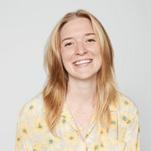
Megan Thiede 2024–25 Fulbright-Tampere University Graduate Award
www.fulbright.fi/ scholarships-to-studyfinland/lois-rothfoundation-awards-usstudent-fulbrighters

Not long after returning from Finland, I unlocked the gate to a small, rarely visited patch of forest behind our school in Washington State. Inspired by my Fulbright experience, I set out to make time in this natural space a regular part of our school week. One day after exploring, a student looked up and asked, “This is what they do in Finland? This is amazing.”
Yes—in Finland, outdoor time is viewed as essential to student well-being and development— not a bonus.
Outdoor learning is necessary to build agency towards climate change and sustainability. Our global climate crisis is deeply impacting the emotional well-being of children, creating real uncertainty about their future. Even in early elementary classrooms, we must help students make sense of the world they are inheriting—supporting their emotions while also fostering hope and action. Fortunately, my Fulbright journey led me to Finland to explore how sustainability education can be developmentally appropriate, emotionally supportive, and action-oriented.
Over three months, I observed classrooms, visited nature schools and museums, and engaged in meaningful dialogue with educators committed to empowering young learners.
What stood out most was Finland’s seamless integration of outdoor learning, social-emotional development, and sustainability. In one classroom, students began their day outdoors in the forest by expressing how they felt, then shared observations from their recent forest visit.
At Vantaan Luontokoulu, students role-played as hares hiding from foxes, sparking conversations about climate change and animal adaptation. Storytelling was another powerful method; Helsinki educators used characters, like Inventor Fox through the FOX model, to introduce sustainability concepts
in creative, age-appropriate ways as young as three years old.
I was also inspired by Finland’s emphasis on futures literacy which encourages students to imagine multiple paths toward a more sustainable world. In one kindergarten, children explored a park through the lens of past, present, and future, building agency and curiosity.
Back home, I developed Our Environment Through Time, a year-long interdisciplinary unit rooted in the Pacific Northwest. Guided by a storytelling character named Gary the Acorn, students explore ecosystems, Indigenous knowledge, and local restoration efforts like the Shoreline Miyawaki Forest Project. Now, outdoor learning is woven into our weekly rhythm.
Moreover, my Fulbright experience transformed more than my teaching—it deepened my purpose. I returned with new tools and renewed passion to nurture young changemakers who feel connected to nature, supported in their emotions, and ready to imagine and shape a better future.
Learn more about Kitten’s project: https://sites.google.com/view/globalgreensproutssite/home
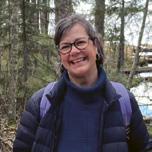
Kitten Vaa Second Grade Teacher Highland Terrace Elementary, WA 2024-25 Fulbright Distinguished Award in Teaching Research, University of Helsinki
www.fulbright.fi/ us-teacher
The annual, virtual Fulbright Forum on Education explores the projects and research of U.S. Fulbright grantees from the field of education. This year, the presentations covered a diverse range of themes at the intersection of education, student experience, and well-being.
This article is a summary of the 2025 Forum presentation by Kitten Vaa, Fulbright Distinguished Award in Teaching Research, University of Helsinki.
www.fulbright.fi/about-us/events/fulbright-forum-education
Text MIRKA MCINTIRE
The impact of the Fulbright teacher exchange programs continues long after the semester in Finland or at U.S. host universities ends.
In addition to good practices and innovations developed for classrooms and shared with colleagues, the friendships built during the program often turn into collaborative projects with fellow alumni and their students.
This spring, Viikki Teacher Training School of the University of Helsinki hosted two teachers and 15 students from the American Farm School in Thessaloniki, Greece, thanks to collaboration that started between Fulbright teachers at the Arizona State University in 2022.
With support from the Transatlantic Classroom Program, designed for smallscale projects including virtual cooperation and short exchanges between upper
secondary schools in Finland and the U.S., seven alumni have already been able to engage their students in transatlantic collaboration since 2023 promoting the development of skills and knowledge relevant to a globalized world.
“As I flew back to Seattle in the spring of 2023 after completing my Fulbright Distinguished Awards in Teaching Research Grant in Jyväskylä, I had no idea how much more my connections with Finland would deepen and grow upon return to my school and community,” Fulbright Finland alumna and teacher at University Prep in Seattle, Mikayla Patella-Buckley says.
A classroom exchange with University Prep and Porkkala upper secondary school turned into a meaningful cultural experience for students in both Finland and the U.S., promoting genuine connection and learning on both sides, and creating lasting impressions and new perspectives.
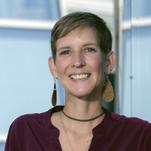
Amber Simpson Associate Professor, Binghamton University, NY 2024-25 Fulbright Specialist
When we think about science, technology, engineering, and math (STEM) education, schools are often the first settings that come to mind. But what if the most powerful opportunities to support children’s STEM thinking happen not just in classrooms— but through meaningful connections between homes, schools, and universities?
As a Fulbright Specialist, I spent several weeks in Joensuu, Finland exploring that question. Hosted by Fulbright Finland alum Lasse Eronen from the University of Eastern Finland, we collaborated with
university students to design new ways to engage families in STEM learning. The focus was on hands-on, problem-solving activities—particularly escape room kits—that children in grades 4–6 and their caregivers could complete together at home. These kits included science, math, and engineering challenges, as well as caregiver guides to support children’s thinking and exploration.
What began as a classroom project evolved into a cross-cultural research collaboration. My host and I developed research questions focused on how future teachers conceptualize family engagement and how designing home-based escape room kits helps them think more deeply about supporting problem-solving as a shared activity between children and caregivers.
During my visit, I also met with a local school headmaster to explore how engineering kits from a U.S.-based National Science Foundation project could support home–school connections. We discussed ways to adapt the kits to topics like sus-
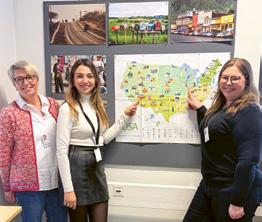
2022 Fulbright teacher alumni Anna-Mari Ojala and Stella Hitiroglou (Arizona State University) and 2016 alumna Maija Monahan (Indiana University Bloomington)
Transatlantic Classroom Program
www.oph.fi/fi/kansainvalisyys/ kansainvalistymisrahoitus/transatlantic-classroom
Read Mikayla Patella-Buckley’s blog post www.fulbright.fi/about-us/blog/watching-ripplesgrow-teacher-deepens-connections-with-finland
“The world, especially today’s world, needs these connections, these ripples. These are the reminders that we have more in common than we ever imagine,” Mikayla says.
tainability and imagined a broader European Union Erasmus collaboration where students across countries could share their work in virtual “show and tell” sessions.
The experience sparked several new directions for my work. Inspired by Finland’s sustainability efforts and the UN’s Agenda 2030 goals, I plan to create new STEM kits for U.S. families focused on environmental responsibility.
Supporting Fulbright Finland Foundation exchanges creates meaningful ripple effects—across research, teaching, and international collaboration. This experience allowed me to co-develop educational tools with real-world relevance, build new academic partnerships, and explore creative ways to unite schools, homes, and universities.
When we invest in cross-cultural experiences like these, we invest in a future of shared learning, innovation, and global understanding.
Read the whole article www.fulbright.fi/news-magazine/ unlocking-stem-education
Cleveland State University
Emeritus Professor Mike Loovis reflects on how his mid-career Fulbright to Finland turned into lasting community ties, new learning goals, and developing a new grant to support future Fulbright scholars in Cleveland and Finland.
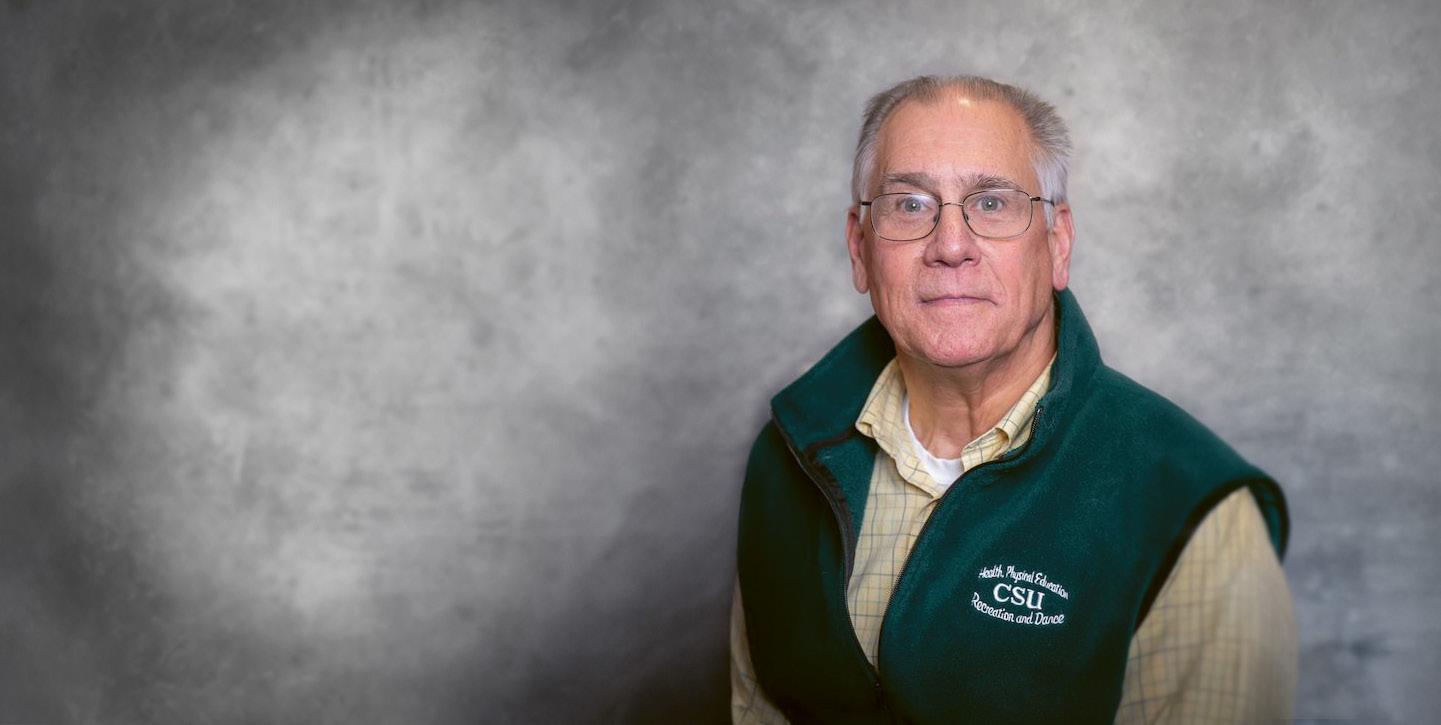
Text LOUISA GAIRN
E. Michael Loovis
Professor Emeritus Cleveland State University 2010–11 Core Fulbright Scholar Program, University of Jyväskylä
Fulbright FinlandE. Michael Loovis Scholastic Award
www.fulbright.fi/fulbrightfinland-e-michael-loovisscholastic-award
Fulbright FinlandE. Michael Loovis Travel Grants to Cleveland State University
www.fulbright.fi/travelgrants/michael-loovistravel-grants
For retired sports science professor Mike Loovis, the path to Fulbright didn’t begin in an office or a research lab, but on a squash court at Cleveland State University. That’s where a faculty colleague, also a Fulbright alumnus, regularly urged him to consider applying.
“Every time we’d play, he’d look at me and say, ‘Loovis, when are you going to do a Fulbright?’” Mike recalls with a laugh. “And I’d always tell him, ‘John, I want to – but the timing’s not right.’”
Eventually, the right timing came along. With encouragement from a Finnish colleague and support from both institutions, Mike submitted a Fulbright proposal to teach and conduct research at the University of Jyväskylä. It was awarded in 2011, just two years before he was due to retire.
“I went to Finland, had a marvelous time, met incredible people, and have since hosted many friends I made there when they came to the U.S. It’s just been a great experience,” he says.
As a lifelong sports science educator, Mike immersed himself in Finland’s unique cultural and sporting life. “I went to hockey games, watched Finnish baseball, and even bandy, which is similar to ice hockey and one of Finland’s oldest team sports. I got a WhatsApp from a friend recently with a photo from a bandy game, and I guessed right that Jyväskylä had won the national championship – for the first time in history! It’s great to be able to relate to those things,” he laughs.
“I had never been to Finland before. I had a colleague there, so I wasn’t going in completely blind, and I did the reading and tried to understand the culture – how people might respond to someone from the U.S.,” he explains. “Finns are reserved, so you can’t go in being too boisterous. I’ve always believed you should be humble and adapt when traveling. That’s worked for me.”
“The Fulbright Finland Foundation team was extraordinary,” he says. “It was very simple – in the best meaning of the term – to acclimate. Not just physically, but socially and culturally. The folks at the Fulbright Finland Foundation just do a marvelous job… I don’t know that I’ve ever dealt with anybody where quality control is thought of as much as it is there.”
“The university was also excellent – everything from preparation to support once I arrived. Everyone was very welcoming,” Mike adds.
Though it came later in his professional career, Mike says his six-month Fulbright experience in Finland proved to be a life-changing adventure, bringing with it new experiences, discoveries, and most of all, friendships.
During his time in Finland, Mike taught students from across Europe, took up guitar lessons for the first time, and even fulfilled a long-standing dream of visiting the Hermitage Museum in Saint Petersburg, inspired by his love of impressionist art. He fondly recalls his daily walks around his host city, having learned to navigate by foot and public transportation, without missing his car at all. “I was
walking five to seven miles a day – probably in the best shape of my life,” he says. “I loved it. The area was very walkable. I didn’t have a car, and my apartment was close to the university.”
Mike’s Fulbright experience has since sparked other surprising connections with Finland. Shortly after returning to Ohio, once again on the squash court, a friend mentioned the Finnish Heritage Museum in the nearby town of Fairport Harbor. Mike and his wife Cindy made the trip, and that casual visit turned into something much more lasting. “I’ve given four or five presentations there and developed a nice relationship with the group. It’s a small enclave dating back to the early 1900s, with many Finnish descendants.”
Mike has returned to Finland several times since his Fulbright, traveling to places like Saariselkä and Pori to reconnect with friends and participate in conferences. One particularly memorable trip involved working hands-on with people with disabilities, teaching adaptive kayaking and other recreational activities as part of a workshop. “You don’t forget experiences like that,” he says.
After a total of 45 years at Cleveland State University, having come back out of retirement to chair his old department from 2016-22, Mike remains as active and as enthusiastic as ever. “I’m still doing research and presentations, so even though I’m officially retired, I’m unofficially not,” he laughs.
In addition to his academic activities, he serves on the Friends of Fulbright Finland Alumni Council, a network of alumni who support continued U.S.-Finland academic exchange, and has found yet another way of giving back, by creating a new Fulbright Finland grant fund to support future exchanges between Finland and Cleveland.
“When I was there, I taught a couple of classes, not just with Finnish students but with students from all over Europe. When I got back, I started thinking: what can we do for the students at my university? What about Finnish students coming to the U.S.?”
“It expanded to the idea of bringing researchers or faculty over to connect with our departments. The goal is to encourage cross-cultural and educational exchanges – students, grad students, faculty, it doesn’t matter. What matters is the connection.”
Mike explains that with support from the Fulbright team in Helsinki, he was able to make his idea into a reality. “I thought, why not do it? I’m using my IRA’s required minimum distributions as charitable contributions to fund it. I don’t need it, and I’d rather use it to help others.”
The result is the Fulbright Finland Foundation E. Michael Loovis Scholastic Award – providing additional funding to one or more Fulbright Finland Foundation grantees whose host institution is Cleveland State University. In addition, it fully funds research travel grants to Cleveland State University.
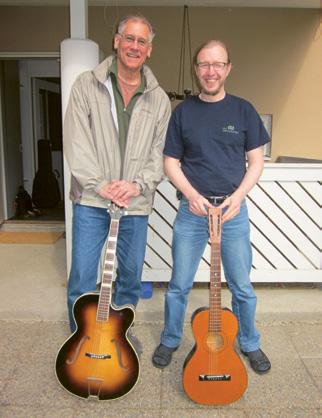
The grant is in its early stages, Mike explains, and he’s hopeful the word will spread. “I’ve been meeting with folks on campus to spread the word,” he says, noting that he hopes this interview may inspire someone to apply. “Sometimes it’s the little things that spur action. With Terhi and her team, I have total confidence,” he smiles.
“During my Fulbright I was determined to fulfill a lifelong ambition – to learn to play the guitar. I was introduced to Pekka Suoniemi (right), who was a high school music teacher in Jyväskylä, and he agreed to take me on as a student. I went to his home once a week for lessons,” Mike says. In the photo, Mike with Pekka Suoniemi in May 2011 after Mike’s final lesson prior to returning to the U.S.
The goal is to encourage cross-cultural and educational exchanges. I thought, why not do it? I’m using my IRA’s required minimum distributions as charitable contributions to fund it. I don’t need it, and I’d rather use it to help others.
Reflecting on the broader purpose of Fulbright, Mike sees its importance only growing over time. “I always go back to how the world is getting smaller. Programs like Fulbright have at their heart the idea that people need to be able to manage the world as it’s getting smaller and not run away from the opportunities.”
“For me, I don’t speak in hyperbole very often, but it was a life-changing experience,” he says. “It’s one thing to go someplace for a week on vacation, and it’s another thing to plant yourself somewhere for five or six months. You assume the mantle of someone who’s there, almost like a local. And I just really enjoyed that,” Mike says.
“Without Fulbright, I wouldn’t have even looked for another opportunity. It made all the difference.” Read more about philanthropy and how to support the Fulbright Finland Foundation, including using RMDs www.fulbright.fi/ work-with-us/donate
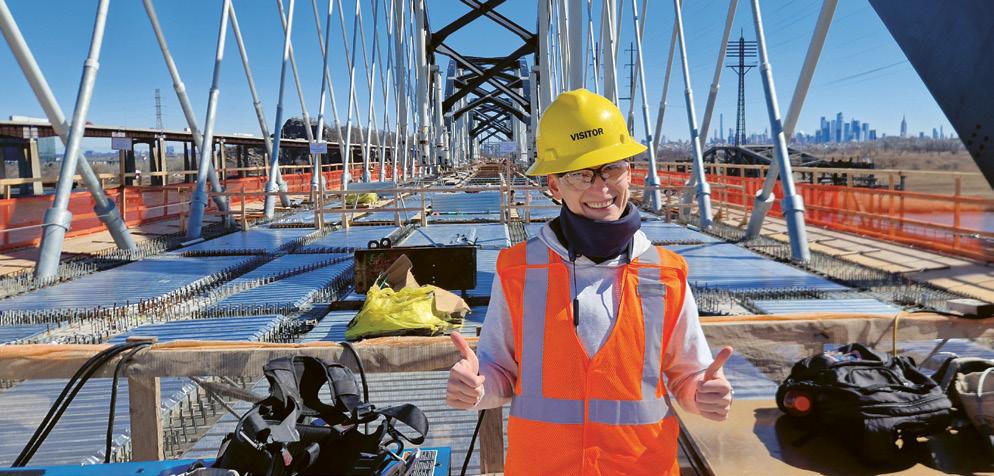
What is it like to be a Finnish Fulbrighter in the U.S.? What kinds of experiences might a graduate student in New York City encounter?
Lada Sokolova , 2024–25 ASLA-Fulbright Graduate Grantee, shares her journey as a Fulbright Finland awardee in a five-part blog series on the Foundation’s website.
In her posts, Lada reflects on the application process, the invaluable support from her Fulbright Placement Advisor in navigating university admissions and standardized tests, and the enriching experiences of joining professional clubs and
attending industry events. She also highlights the unique feeling of being part of the Fulbright Finland community.
“Nobody will let you forget that you are something special. And there is no need to prove the opposite,” Lada says with a smile.
You can read Lada’s blog series and explore more stories from Finnish and U.S. grantees and alumni on our website. Recent posts cover topics such as takeaways from Finnish language summer school, experiences from interning at a bank in New York City, and innovative approaches to teaching Finnish language and culture at a U.S. university.
In her blog post, 2023-24 Fulbright-University of Turku Graduate awardee Chase Friel writes about her experiences studying in the Inequalities, Interventions, and New Welfare State master’s program at the University of Turku.
“I have studied welfare states in a comparative nature, learned quantitative methods of analysis on policies and social phenomena, and focused on inequality across numerous areas, with an emphasis on how inequality persists across generations and dimensions”, Chase says.
“This semester I have been interning at the Finnish Institute for Health and Welfare, working within a project on childhood mental health outcomes. My
research specifically focuses on the way childhood mental health conditions affect educational attainment and early adulthood outcomes. In May, I presented my research at the INVEST Conference at the University of Turku.”
Building on her experience and connections created during her Fulbright in Finland, Chase will continue her research after graduation from the University of Turku as she will begin her PhD in Public Policy at the University of North Carolina–Chapel Hill in the fall. “I will be bringing my experience in Finland with me to help seek new ideas for welfare implementation back at home,” Chase says.
Read more grantee and alumni stories www.fulbright.fi/ about-us/blog
Chase Friel Lada Sokolova at a bridge construction excursion, which was part of her Construction Management studies at New York University, Tandon School of Engineering.

Read the blog post on the Foundation’s website www.fulbright.fi/aboutus/blog/researchinginequalities-andinterventions
The Friends of Fulbright Finland (FoFF) Alumni Council held its hybrid meeting at the Embassy of Finland in Washington, DC in conjunction with the launch event for the Finnish-American Society in Science, Innovation, and Arts.
The Council welcomed two new members who started their 3-year term in May 2025: Kelly Day, 2014-15 Fulbright Distinguished Awards in Teaching Research Program, Noblesville, IN and Michael Putman, 2022-23 Global Fulbright Scholar, Charlotte, NC.
“I’m looking forward to the next years on the FoFF Alumni Council. It’s an excellent opportunity to engage with alumni and provide opportunities to keep them involved,” says Michael Putman.
“I’m deeply honored to join the FoFF Alumni Council and grateful for the life-changing impact the Fulbright Finland program has had on my career and global perspective. I’m excited to support and connect Fulbright Finland alumni worldwide as we continue promoting col-
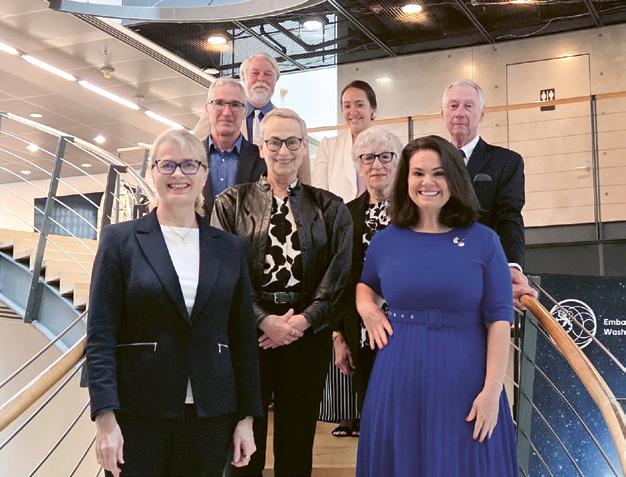
laboration, education, and goodwill across borders,” says Kelly Day.
Kelly and Michael join continuing Council members Mary Anne Butler, John Donnellan, Maureen Mascha, Susanna Monseau, Ed Sivak, Bradley Turner, and Robyn Young Bill Eaton and Mike Loovis continue as Special Advisers, and Leasa Weimer and Julia McGee in subcommittee roles. A sincere thank you to Bruce Blair who concluded his term on the Council.
The Council represents the Foundation alumni living in the U.S. by developing the FoFF alumni network and serving as an alumni advisory Council to the Foundation.
The ASLA-Fulbright Alumni Association welcomes new members to the Board: Seda Altunbay, 202324 Study of the U.S. Institute for Secondary Educators; Larry Abdullai, 2024-25 Fulbright-KAUTE Foundation Award; Emmanuel Abu-Danso , 2024-25 Fulbright-KAUTE Foundation Award; Pekka Kolehmainen, 2024-25 ASLA-Fulbright Research Grant for a Junior Scholar; and Kristina Leppälä, 2025-26 Fulbright Finland Travel Grant for Research Collaboration. Maija Urponen, 2021-22 Fulbright Mid-Career Professional Development Grantee, continues as the Chair of the Board.
Similar to the Friends of Fulbright Finland Alumni Council, the Association Board
serves as an advisory group for the Foundation.
Founded in 1953, the ASLA-Fulbright Alumni Association in Finland is one of the oldest Fulbright alumni associations in the world. All Fulbright Finland alumni can join the Association. There is no membership fee. The Association builds awareness of the Foundation’s programs in Finland, and creates networking and collaboration opportunities through events, meetings, visits, and lectures for members and current U.S. Fulbright grantees in Finland.
Take an active role in the ASLA-Fulbright Alumni Association
www.fulbright.fi/asla-fulbright-alumni-association
Friends of Fulbright Finland Alumni Council www.fulbright.fi/friends-fulbright-finland/friendsfulbright-finland-alumni-council

July 31-August 3, 2025 Duluth, MN
On Saturday, August 2, there will be a panel discussion with Fulbright Finland alumni discussing their experiences and the impact of Finnish-U.S. exchanges.
Ed and Barbara Sivak have volunteered to serve as the contacts for alumni wishing to connect with each other during FinnFest. They are sponsoring a table at FinnFest’s Tori Nordic Fair, including also “visiting hours” staffed by volunteer alumni to answer questions and provide information useful to applicants. This year, FinnFest USA will be held in Duluth, Minnesota, and will feature Leena-Kaisa Mikkola, Finland’s Ambassador to the United States, as the keynote speaker. FinnFest USA is an annual festival organized since 1983 that celebrates Finland, Finnish America, and Finnish Culture.
https://finnfest.us/
Nelson Totah and Sten Olsson have assumed new leadership roles within the Board of Directors of the Fulbright Finland Foundation.
Totah has been elected Chair for a two-yearterm, having previously served as Vice-Chair of the Board. In this role he succeeds Timo Korkeamäki who continues as a member of the Board. Sten Olsson was elected Vice-Chair of the Board.
Totah is Associate Professor in Neurophysiology and Pharmacology at the University of Helsinki. Olsson is a partner within global law firm White & Case. Both Totah and Olsson are alumni of the Fulbright Finland Foundation.
The Foundation warmly welcomes the new Chair and Vice-Chair and conveys its gratitude to Timo Korkeamäki for his commitment and significant contribution during his term as the Chair.
“It is an honor to helm the Board of Directors during a time of substantial uncertainty, but also great opportunity for Finnish-U.S. exchanges,”
Nelson Totah says. “The Fulbright Finland Foundation will continue its work increasing the transatlantic ties through people-to-people exchange of talent and knowledge.”

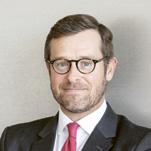
www.fulbright.fi/about-us/board-directors
In February 2025, the Fulbright Finland Foundation office moved to Töölö. The new premises are located in the Economicum building, which is part of the University of Helsinki campus. Economicum houses units of several of the Foundation’s key cooperation partners, including the University of Helsinki, Hanken School of Economics, and Tampere University.
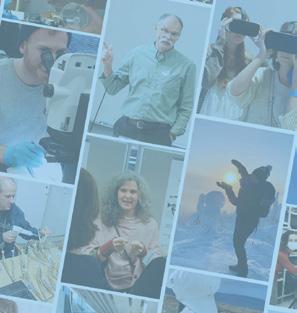
Situated just a stone’s throw from the Central Railway Station and the Parliament House, and right next to the Natural History Museum, the new location places the Fulbright Finland Foundation at the center of Helsinki’s academic, civic, and cultural life.
The new address is Arkadiankatu 7, Helsinki.
Create a direct and lasting impact! Donate to the Foundation and help empower the next generation of citizen diplomats.
Now is the time to invest in the future.
www.fulbright.fi/work-with-us/donate
Rahankeräyslupa RA/2022/61
EDITOR-IN-CHIEF Terhi Mölsä EDITORS Maija Kettunen (Managing Editor), Bill Eaton DESIGN AND LAYOUT Tanja Mitchell, Grafee EDITING OFFICE Fulbright Finland Foundation, Arkadiankatu 7, FI-00100 Helsinki, FINLAND E-MAIL office@fulbright.fi ISSN 2489-2149 (print) ISSN 2489-2157 (online) PAPER Scandia White 150 g/m² and 115 g/m² PRINT CIRCULATION 250 PRINTED BY PunaMusta Oy ONLINE www.fulbright.fi/fulbright-finland-news-magazine
Fulbright Finland News on Fulbright Suomi -säätiön lehti säätiön toiminnan rahoittajille ja kumppaneille. Se ilmestyy kaksi kertaa vuodessa painettuna ja verkkoversiona. Artikkeleissa ilmaistut mielipiteet ovat kirjoittajien omia. Aineisto vapaasti lainattavissa, lähde mainittava. // Fulbright Finland News is a biannual magazine published in print and online by the Fulbright Finland Foundation for its stakeholders. Opinions expressed by authors are their own and do not necessarily reflect those of the Foundation. Reproduction allowed, source must be cited. // While every effort is made to ensure the accuracy of the material in this publication, the Fulbright Finland Foundation does not accept liability for any errors or omissions.
EDITORIAL COUNCIL
Minna Haka-Risku, Manager of International Affairs, Tampere University; Anu Härkönen, Head of International Affairs, Turku University of Applied Sciences; Bradley Turner, PhD Candidate, Massachusetts Institute of Technology; Petri Koikkalainen, Counselor for Education and Science, Embassy of Finland, D.C.; Mila Seppälä, Doctoral Candidate, University of Turku; Sari Tojkander, Counselor for Science and Education, Consulate General of Finland, Los Angeles.
www.fulbright.fi

FULBRIGHT FINLAND FOUNDATION
THE FULBRIGHT FINLAND FOUNDATION is an independent not-for-profit organization based in Helsinki, Finland.
Its purpose is to promote a wider exchange of knowledge and professional talents through educational contacts between Finland and the United States.
The Foundation collaborates with a range of government, foundation, university, and corporate partners on both sides of the Atlantic to design and manage study and research scholarships, leadership development programs, and internationalization services.
Finnish Members:
Kirsimarja Blomqvist Professor for Knowledge Management, School of Business and Management, Lappeenranta-Lahti University of Technology LUT
American Members:
Gabriela Arias Villela Acting Public Affairs Officer U.S. Embassy
Susan Bridenstine
Acting Deputy Chief of Mission U.S. Embassy
Ex-officio:
Terhi Mölsä Chief Executive Officer Fulbright Finland Foundation
Honorary Chair:
Ambassador of the United States to Finland Finland-America Educational Trust Fund
The Fulbright Finland Foundation is financially supported by the Finland-America Educational Trust Fund.
Board of Directors
Finnish Members:
Mikko Koivumaa
Director General of Communications, Department for Communications and Culture, Ministry for Foreign Affairs Chair
Jaana Palojärvi
Head of International Relations Finnish Ministry of Education and Culture
American Members:
Christopher Krafft Chargé d’Affaires
American Embassy Vice Chair
Susan Bridenstine
Acting Deputy Chief of Mission U.S. Embassy
Director General / Säätiön asiamies (ex-officio):
Terhi Mölsä
Chief Executive Officer
Fulbright Finland Foundation
Kaarle Hämeri Chancellor University of Helsinki
Timo Korkeamäki Dean, School of Business, Aalto University
Sten Olsson Partner White & Case LLP Vice Chair
Erika Holt Customer Account Lead Nuclear Energy Sector, VTT Technical Research Centre of Finland Ltd.
Nelson Totah Associate Professor HiLIFE Helsinki Institute of Life Science University of Helsinki Chair
E-mails: firstname.lastname@fulbright.fi
b Pia Arola Johdon assistentti Executive Assistant 044 5535 278
b Emmi Jelekäinen Ohjelmapäällikkö, tutkijaohjelmat
Program Manager, Scholar Programs 044 5535 275
b Maija Kettunen Viestintäpäällikkö Communications Manager 044 5535 277
b Karoliina Kokko Vastaava ohjelmapäällikkö Senior Program Manager 044 5535 268
b Saara Martikainen Ohjelmakoordinaattori Program Coordinator (part-time) 044 4914 747
b Mirka McIntire Ohjelmapäällikkö, Opettajavaihto- ja koulutusohjelmat Manager, Teacher Exchange and Education Programs 044 5535 269
b Tarja Mykrä Ohjelma-asiantuntija Program Specialist (part-time) 044 7351 017
b Terhi Mölsä Toimitusjohtaja Chief Executive Officer 050 5705 498
b Heidi Tiainen Ohjelma- ja tapahtumakoordinaattori Program and Events Coordinator 044 7153 023
b Mihkel Vaim Koordinaattori Coordinator 044 4939 266
Currently on leave: Emilia Holopainen
FULBRIGHT FINLAND FOUNDATION
Fulbright Finland Foundation Arkadiankatu 7
FI-00100 HELSINKI
FINLAND
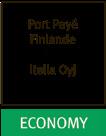
4.6. FoFF Welcome Event
12.6.
Fulbright Finland Foundation Board Meeting
4.–27.7. Fulbright Finland Office Closed
31.7.–3.8. Alumni convene at FinnFest USA
18.–21.8. Arrival Orientation for U.S. Fulbright Grantees
20.8. ASLA-Fulbright Alumni Association Welcome Event
15.9.
2026–27 Application Deadline: Fulbright U.S. Scholar Awards for Finland
Fulbright Finland Foundation Board Meeting
Friends of Fulbright Finland Alumni Council Meeting
1.10.
2026–27 Application Deadline: Visiting Scholar and Mid-Career Professional Development Programs
10.–11.10. American Voices Seminar, University of Turku
21.10.
2026–27 Application Deadline: Fulbright Finnish Language and Culture Teaching Assistant Program
12.11.
2026 Application Deadline: Friends of Fulbright Finland Alumni Enrichment Award
17.–21.11. International Education Week
27.–28.11.
Thanksgiving and Enrichment Program for U.S. Grantees, Helsinki
Meet Fulbright Finland Alumni at FinnFest USA
July 31–August 3, 2025 Duluth, MN
